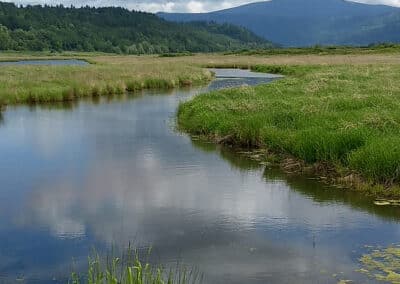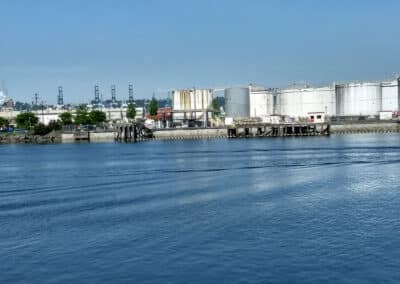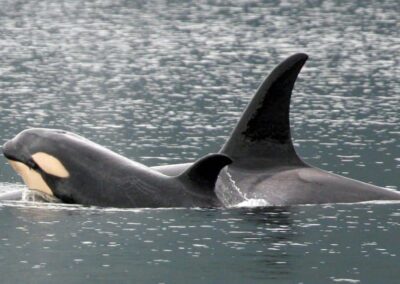More Protections for Washington Waters Possible
Protections for Washington Waters
A federal court ordered the U.S. Environmental Protection Agency (EPA) today to take the first step towards protecting endangered salmon, steelhead, and Southern Resident killer whales from toxics in Washington State waters.
Writing that “EPA’s Waiting-for-Godot approach . . . cannot be justified with the framework or purpose of the [Clean Water Act],” federal district court Judge Marcia J. Pechman gave EPA 180 days to issue a formal determination on whether it needs to take action.
The judge pointed to Washington’s long-standing failure to protect aquatic species, citing EPA’s having “acknowledge[ed] Washington’s feeble efforts to timely comply with the [Clean Water Act]” while the federal agency itself “has unreasonably abandoned its role for years.”
Concluding that EPA’s failure “presents exceptional circumstances,” Judge Pechman cited the plight of “unique species in Washington, such as Puget Sound’s Southern Resident Orcas who are some of the most contaminated marine mammals in the world due to bioaccumulation through the food stock, particularly through Chinook salmon.”
The lawsuit, filed in federal district court in 2020 by Northwest Environmental Advocates (NWEA), challenged EPA’s 2017 denial of a formal petition that the organization submitted to EPA in 2013. The NWEA petition asked EPA to update Washington’s nearly three decades-old water quality standards to protect aquatic life—such as Chinook salmon—from toxics.
In justifying its denial of the NWEA petition, EPA relied on its assumption that the Washington Department of Ecology would eventually take care of the problem. But Judge Pechman said EPA’s reliance was not justified because “Washington had abdicated its duties” and that “nothing in the record showed that Washington was a willing partner.”
“EPA has had no legitimate reason for withholding critical protection to Washington’s threatened and endangered fish and wildlife,” said Nina Bell, NWEA executive director. “It’s taken a long time to get here but we are grateful and very happy that the court saw through all of the agency’s excuses.”
“EPA simply had no leg to stand on,” said Lia Comerford, staff attorney with Earthrise Law Center. “The Clean Water Act requires that Washington State have water quality standards to protect fish and wildlife from toxics and neither the EPA nor the Washington Department of Ecology has chosen to meet that requirement.”
The lawsuit identified many toxics as not having been updated as required by law including the following: aluminum, ammonia, arsenic, copper, cyanide, mercury, nickel, PCBs, selenium, pentachlorophenol, and tributylin. Many of these toxic pollutants have been implicated in the deteriorating status of fish and wildlife in other Pacific Northwest states.
NWEA is represented in this case by Lia Comerford of the Earthrise Law Center at Lewis & Clark Law School (Portland) and Bryan Telegin of Bricklin & Newman (Seattle).

Court Wins for Puget Sound & Columbia River

Stopping Tacoma from Harming Puget Sound Chinook Salmon

